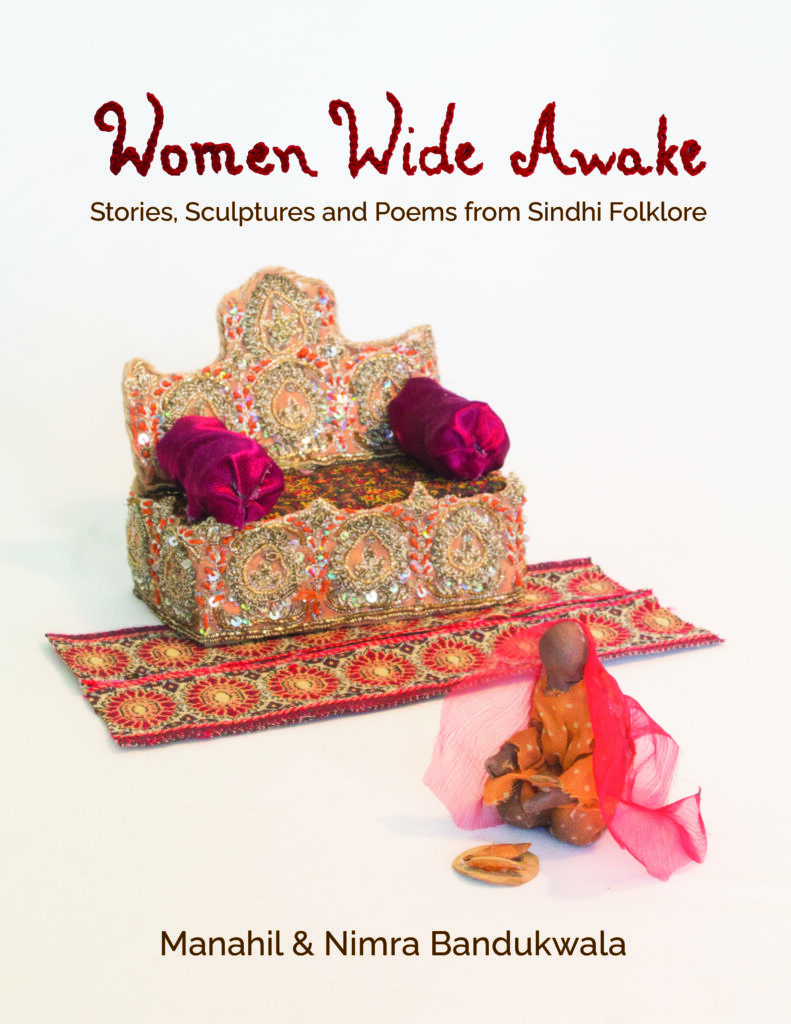Women Wide Awake

Women Wide Awake is a collection of stories, poetry, and visual art exploring folklore from the region of Sindh, Pakistan. This multi-genre book features the stories of seven women, sea monsters, mystical saints, and more. It explores themes that have resonated with people for centuries, including courage, strength, defiance, and love. Two sisters build a labyrinthine palace to test their suitors. . .a woman swims across a treacherous river at night to meet her forbidden lover. . . a bartendress makes a grave mistake. These folktales have persisted across generations through oral storytelling and song. Sculptures created with reclaimed materials including sari fabric, wedding invitations, dried flowers, shells and bones accompany each story.
Women Wide Awake is a collaborative collection as part of Reth aur Reghistan, a multidisciplinary arts project by Pakistani sisters, Manahil and Nimra Bandukwala.
Blurbs
Women Wide Awake is a book, but it is also a woven fabric. From one perspective, the strands are storytelling, poetry, collage, and sculpture, and from another, oral research, imagination, and revisioning. Through each of these lenses, it is a compelling and moving work. But the one that awes me is the weaving together of a folklore across the distance of migration; the material that could not come in suitcases or boxes, Nimra and Manahil Bandukwala have gathered and carried home.
Sadiqa de Meijer
Into the face of eco-catastrophe, we find magic woven into these fabulist Sindhi tales, a multi-genre feast for the senses, transporting us into dimensions and textures rich with symbols. Women Wide Awake reminds us of the enduring power of story, to illuminate and to heal.
Renee Sarojini Saklikar
The visual elements of this book are beautiful physical embodiments and documentations of our collective histories and stories. The materials used to create these works — old wedding invitations, dried flowers, fabric from the artists’ grandmother’s saris — hold within themselves their own databases of memories and stories. A powerful way to tangibly and emotionally connect us to our past, present and future.
Misha Japanwala